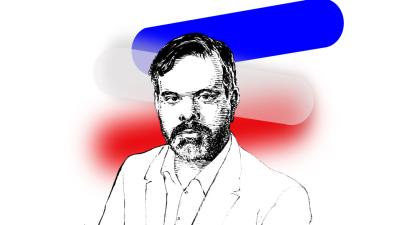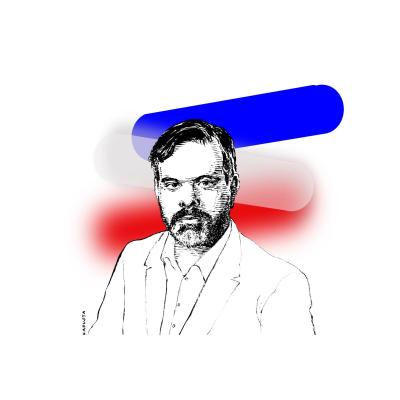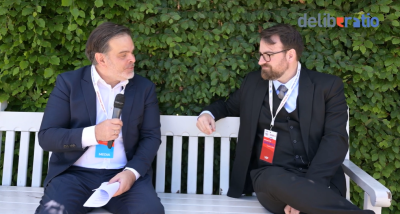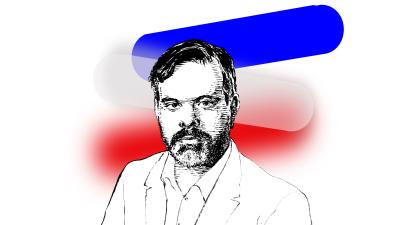Since Russia's invasion of Ukraine and the solidarity shown by Poles towards Ukrainians, negative articles against Warsaw in the French press have considerably decreased. For almost seven years, the French media have led people to believe that Poland has become an "ultra-nationalist" authoritarian country, regardless of the fact that elections are free, legitimate, legal and fair, that no demonstrations have ever been banned and no one has been injured, that no one is imprisoned for their opinions, that two-thirds of the mass media criticise the government on a daily basis, and that many members of the ruling party have fought for democracy against totalitarianism, risking their lives.
The Polish government may not be 'progressive', but that does not make it any less democratic. Otherwise, how could we term so Adenauer, Churchill, de Gaulle or Schuman, who, even with the greatest good faith in the world, could not be called progressive? In reality, as the vice-president of the French Association of Constitutional Law, Anne-Marie Le Pourhiet, has rightly written, European judges and leaders are adopting an "ideological approach disguised as a defence of the rule of law", which raises the question of whether we still have "the right to choose a conservative government in Europe?
As a Frenchman, living in Poland since 1999, a lawyer by training, publishing analyses in the French and Polish media, I can assure you that a lot of negative information you may have read about this country has been manipulated and often purely and simply invented. Whenever I investigated the origin of such false information, in at least half of the cases it came from networks of former communists or "correspondents" who worked in Moscow. In some of the remaining cases, we find the "Russophile" French sovereigntist milieu - such as the magazine "Marianne", whose journalist, in charge of regularly writing articles denigrating Poland, is a specialist in "Russophobia" (this cannot be invented). It should be remembered that the owner of "Marianne", Daniel Kretinsky, had Russian gas as his main source of income. We should also mention that the magazine's director, Ms Polony, has recently appeared on TV shows preaching that the war in Ukraine has "by chance" allowed the Americans to sell their shale gas. In politics, Ms Polony was an earlier supporter of Jean-Pierre Chevènement, a former French interior minister, personally decorated by Vladimir Putin. He was one of the main propagators of the Russian narrative in French power circles, notably with President Macron.
Today, Poland is mainly attacked in the French media by those crypto-Putinist sovereigntists who call Poland a Russophobe, dragging Europe into war, for the greater interest of the United States and with French taxpayers' money. First of all, there are those who use this caricature excessively, making fools of themselves: the Putin-loving influencers on social networks. They go so far as to accuse Poland of wanting war in order to be able to annex western Ukraine, in fact taking up a partition plan proposed by the Russian Duma in 2014 to the Polish foreign minister - who had rejected the proposal. They also compare Poland to an arrogant beggar who uses French taxpayers' money to buy American arms. Of course, they forget to point out that Poles in Poland shop at Auchan, Carrefour, Castorama, Leroy Merlin, Brico, subscribe to Canal+ and have Orange as their telephone operator, put their savings in Crédit Agricole and stay at Ibis, Mercure hotels, etc. or, as Thomas Piketty points out: the inflow of transfers from the EU to Eastern countries is lower than the outflow of profits and other property income from these countries. In short, Eastern Europe brings in more money to the West than it costs.
None of the above would matter much if this was only said by the discredited defenders of Russian war criminals. The problem lies in the fact that such fake stories also appear in the French media and defence circles. The most edifying case is that of a teacher at the École de Guerre (a training establishment for senior officers of the French armed forces and defence services), who ran in the legislative elections in Paris under the colours of the party of the former Minister of the Interior, Mr Chevènement. A year ago, this teacher, then totally unknown, was highlighted by the YouTube channel of Alain Juillet, former director of French intelligence and former employee of Russia Today, who unashamedly pours out the Kremlin's narrative and fake news on social networks. Now this teacher writes particularly indigestible analyses, taking lines from European budgets and comparing them with European regulations. In these deeply boring 'analyses', only the title and the two-three sentences in the conclusion, which violently attack Poland, rouse the readers from lethargy. This is the usual procedure of "negative campaigning": by means of a pseudo-scientific analysis, one legitimises unfounded negative language. Thus, this 'expert' reproaches the Poles for modernising their army 'at the expense of French and German taxpayers', not with French but with American arms. Moreover, to top it all, Warsaw "violates European values". What European values is Poland violating? The author does not say. Perhaps it is the fact of welcoming more than 3 million Ukrainians with open arms, without creating camps, by granting them the same rights as its population? By providing a maximum of military equipment from the outset and thus disarming its own army, while the Russian ogre is once again at the gates of Poland? What our "analyst" forgets to mention is that Poland, as a percentage of its GDP, has spent 10 times more than France and 3 times more than Germany on military equipment for Ukraine. And if we take into account humanitarian aid, we can talk about ratios of 1 to 100 for Poland. And all this while the EU has frozen European development funds for Warsaw. It may sound incredible, but ever since Poland defended the EU's eastern border, first in 2021 with Belarus attempting to launch a migration invasion, and then with Russia attacking Ukraine, the EU has suspended funds to Poland. Above all, what our insipid teacher forgets to mention when he criticises Poland for buying Korean tanks instead of French ones is that France no longer produces them. The French defence industry is operating at its peak productivity and would be unable to meet Warsaw's urgent orders. Warsaw also buys Korean self-propelled guns, though the Polish industry itself assembles ones of equally good quality. But the problem is that, like France, it does not produce them quickly enough. Poland, which is on the front line against Russia and has given away its equipment to Ukraine, urgently needs to arm itself en masse. To do so, it is buying equipment from countries that can supply it immediately. How can this expert, a teacher of defence, not know this?
Poland is certainly pro-American and buys its military equipment from Washington. However, like all of Europe, we are the exception here. Have you ever wondered why Poland is almost exclusively criticised in France for buying American weaponry? All of Europe considers its defence policy within NATO and buys weapons from America. We can regret it, but to believe that France could change this state of affairs just by puffing up its chest and calling for European patriotism is ridiculous. You have to understand why all these states are so "pro-American". This is only out of self-interest. The countries of Central, Eastern and Scandinavia have identified only one real and immediate threat: Russia. And only one power capable of defending them: the United States. It is not France that could do it. Worse, France provokes defiance and contempt with its discourse on its vocation as a "balancing power" that always wants to play both sides of the fence. There is no point in trying to be a referee. You never win anything, except blows, especially when you no longer have the critical size to impose even a minimum of respect. It must be borne in mind that out of all the NATO countries, Paris has totally and miserably failed to understand the Russian ambitions and threat, both before and after the Russian invasion. If France wants Europe to start "empowering" itself militarily, it must first look at itself. It must start by identifying its Russian proxies at all levels of the state and clean up its act. It must also absolutely separate itself from all its "experts", paid with public money, who did not see anything coming and who, by their own admission, still do not understand "what took Putin". A major clean-up, clearly visible, demonstrating a real turnaround, is a sine qua non condition for restoring a minimum of confidence in our European partners. These "experts" have made fools of us and continue to do so.
We must realise that we are a leading continental military power and that nobody respects us. Neither the NATO countries nor Russia. The desire for a "power of balance" so much promoted by the sovereigntist circles of Jean-Pierre Chevènement and venerated by many French senior officers and diplomat, is a total failure. Perhaps it is time to wake up?
Read also
Country Report: France, February 2023
Throughout February, France has been gripped by the "Pierre Palmade" affair, named after a famous comedian and showbiz star known to all French people. On 10 February, his car violently collided with another car whose passengers were a six-year-old boy, his father and his sister-in-law, a young pregnant woman.










Comments (0)